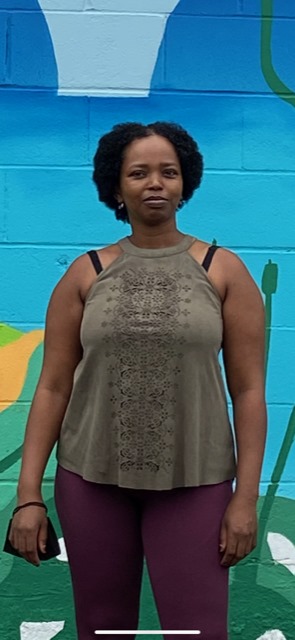November 11, 2021 - Asma Abdille was born in Mogadishu, the capital city of Somalia. Her real birth date is unknown; her parents have contradicting birth dates, so she decided to go with the birth date on her immigration documents. She was born and grew up as a hearing person. In 1990, when Asma was an infant, a civil war broke out in Somalia, causing her parents to divorce because the two main tribes that were fighting were her parents' tribes. After the civil war broke out, Asma's mother took her to her hometown in the northern regions of Somalia, also known as Somaliland. Her mother then fled to Yemen as an asylum seeker, so Asma was left with her maternal grandmother to raise as a nomad, tending the family's livestock. Nomadic life is not like typical farm life, “nomadic life is constantly moving from one place to another to seek pasture and water during droughts and dry seasons.”
Growing up with the nomadic lifestyle as a herds-girl, Asma was not exposed to education or knowledge of the world around her other than taking care of the animals and the only livestock the family had to survive. Also, she had never met her parents, nor could she contact them. In the early 2000s, Asma's grandma relocated to Burao, one of the biggest cities in Somaliland. Asma was enrolled in an Islamic school that mainly taught about the Koran and the Arabic language. She was not enrolled in school because she was considered too old for elementary and middle school and too illiterate for high school. Another reason she was not enrolled in school was that her grandma didn't have enough money to pay for her education.
In 2004, Asma's life took a drastic change; she lost her hearing. “I got tinnitus; my ears started ringing.” After losing her hearing, Asma’s family was convinced that she was possessed and subjected her to various exorcisms, including sending her to places where imams perform exorcism regularly for a month and a half where the exorcist molested her. The only education Asma had growing up was the Islamic school that she enrolled in early years. She learned the Koran, Arabic language, and how to read and write her native language, and through an adult education class, one of her neighbors taught at her home.
In 2008, Asma arrived in the United States as an immigrant at age 18. Her mother had made her journey from the Middle East to the United States and sponsored Asma later. After many months of going from doctor to doctor and from audiologist to audiologist for her hearing loss, Asma was enrolled in high school. At the time she was enrolled in high school, she knew neither English nor ASL. The school hired a spoken Somali language interpreter for her for the first month to communicate with her teachers and classmates. During the second month of her high school experience, the English teacher decided to do a one-by-one meeting with Asma to teach her English and ASL for an hour a day, and that was how her ASL and English learning journey began. After graduating high school a year later, Asma enrolled in a transitional program, which led to adult education to further her English and ASL knowledge.
After over a decade of working in a non-deaf-friendly environment with a lack of communication and personal growth, Asma decided to seek a job in the deaf community. She recently got a job with the deaf adult education program at Thinkself as an assistant teacher. Her responsibilities include helping the learners achieve their goals in the classroom and assisting the teacher with the daily workload. As a former learner of the ABE program (Adult Basic Education), formerly under Communication Service for the Deaf (CSD), she is familiar with the adult education program. The learners learn various subjects such as English, ASL, citizenship, driver's education, and more. She also goes on field trips with the learners or remains in the classroom when the teacher takes some learners to field trips.
Asma enjoys everything about her job because “I am not only teaching them, but I also learn from them. Their culture, their stories, and experiences." As a deaf immigrant herself, she feels that she has a lot in common with the learners.
As a new member of the staff, she had no previous experience in interacting with various adult learners from around the world. She has a few challenges, including communicating with new learners who recently arrived in the United States and have minimal knowledge of English and/or American Sign Language. However, she is working on getting through these challenges by learning from the teacher and management.
Asma shares the following words of wisdom: “Working in a non-deaf friendly environment can be challenging because of the lack of communication, accommodations, inclusivity, accessibility, and personal growth at the workplace. But that shouldn't be the end of the world. You can always search jobs in the deaf community or in deaf-friendly environments that provide accommodation, accessibility, and advocates for your rights.”
Outside work, Asma enjoys spending time with her daughter, jogging, swimming, Netflix, organizing, reading books, and connecting with people through social media.
The #CanDoAnything campaign showcases people who are deaf, deafblind, or hard of hearing at work, giving them an opportunity to share what they do at their jobs and explain how communication access works for them. This campaign shows what our community can do, which is anything!
